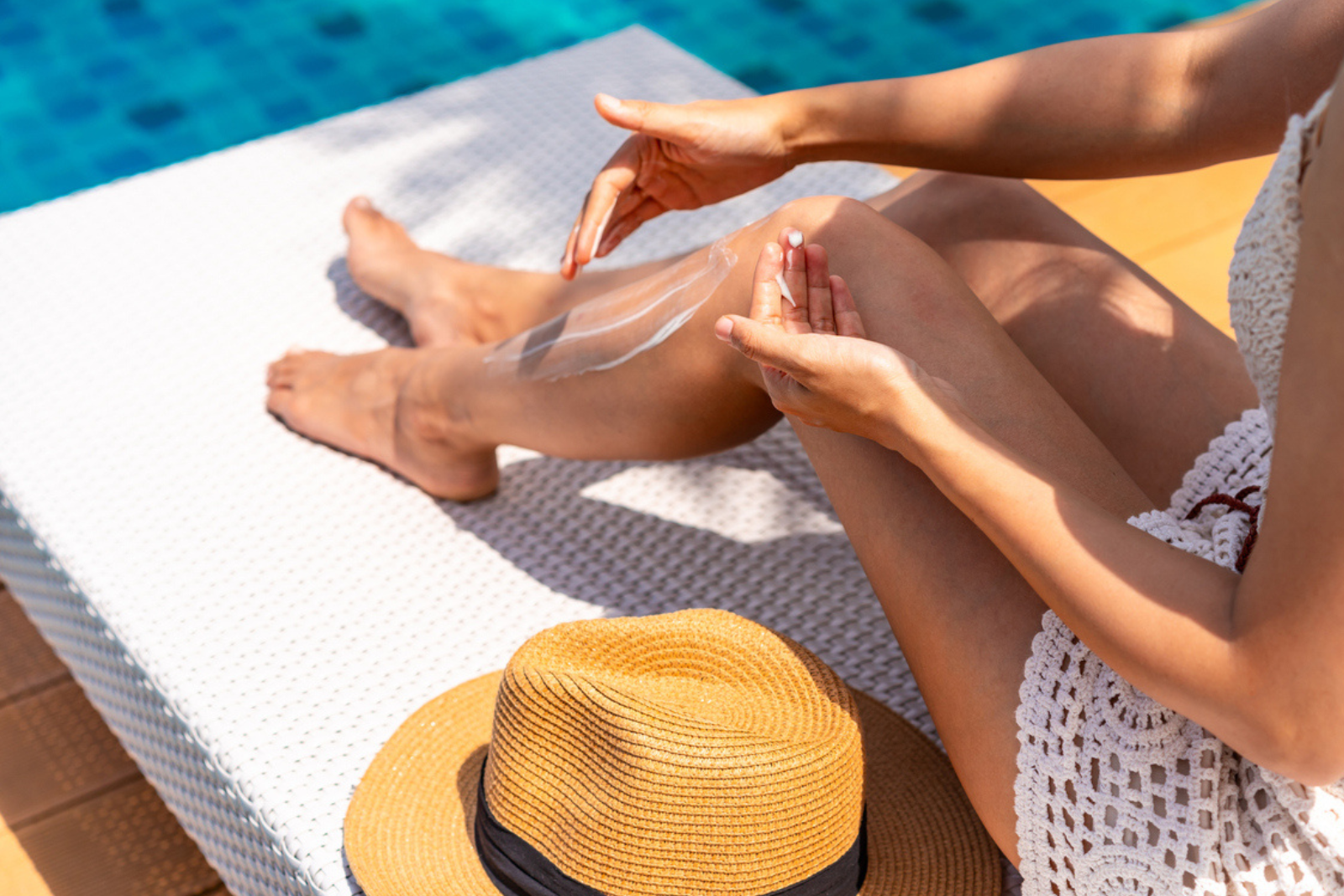As the sun shines brighter and temperatures rise, our skin faces new challenges during the summer months. From sunburns to heat rash, the risks increase when we're outdoors enjoying all that summer has to offer. Whether you're lounging by the pool, hiking through the woods, or simply soaking up some sunshine, taking care of your skin is more important than ever. Here are some essential tips for keeping your skin healthy and protected this summer.
Common Skin Concerns in Summer
Most summer skin concerns stem from the increased exposure to the sun.
“The sun is essential for life and does have some benefits, including vitamin D synthesis and anti-inflammatory effects in the skin,” North Waukee dermatologist Dr. Adam Miller explains. In places like Iowa, where the sun can be intense, your body reaches its vitamin D production limit in just 10-15 minutes. After that, ultraviolet (UV) radiation starts to damage your skin.
One of the most obvious risks of prolonged sun exposure is skin cancer. It’s important to know that anyone, regardless of age, gender, or ethnicity, can develop skin cancer. In fact, the risk of skin cancer starts to accumulate early in life, especially for teens. A single blistering sunburn early in life can double the risk of developing melanoma later in life. So, adopting safe sun practices early on is crucial.
But sun exposure isn't just about skin cancer. It can also lead to aging signs like wrinkles, dark spots, and skin thinning, making it easier to bruise. These effects result from the cumulative damage from the sun over time. In addition, sun exposure can worsen certain skin conditions like eczema, rosacea, and autoimmune skin disorders.
Protecting Your Skin from Summer Irritants
Summer isn’t just about sunburns — there are many other irritants to watch out for. Poison ivy, for example, is common in areas like Iowa, causing an allergic rash upon contact. The best way to avoid poison ivy is to familiarize yourself with the plant's appearance and steer clear of it. Wearing long pants and sleeves can add a layer of protection.
“If you believe you have come in contact with poison ivy, you should immediately shower to wash off any of the plant’s resin and wash all of the clothes you were wearing," Dr. Miller says.
Chlorine from swimming pools can also be a culprit for skin irritation. After swimming, rinse off and apply a fragrance-free moisturizer to repair your skin's barrier. If you’re dealing with sunburn, cool showers and moisturizing creams with aloe vera can help soothe the discomfort.
Heat rash (miliaria) is another summer concern, especially in hot, sweaty weather. Wearing loose-fitting clothing and staying cool can help prevent this condition. Similarly, sweat can contribute to folliculitis, an infection of the hair follicles. To avoid this, change out of sweaty clothes immediately and wash affected areas with an antibacterial wash like benzoyl peroxide.
Choosing the Right Sunscreen
With so many options on the market, selecting the right sunscreen can be overwhelming. Sunscreens fall into two categories: chemical blockers and physical blockers. Chemical sunscreens absorb UV light and convert it into harmless heat, while physical sunscreens (such as those containing zinc oxide or titanium dioxide) block UV light from reaching the skin.
“The most important factors when selecting a sunscreen are to ensure it is labeled broad spectrum (meaning it blocks both UVA and UVB), is SPF 30 or higher, and is labeled water resistant,” Dr. Miller says. ”If you have sensitive skin, physical sunscreens may be a better option, though they often leave a white residue. However, newer micronized versions reduce this white cast, and tinted options can match your skin tone."
Different types of sunscreens suit different needs. Creams are great for dry skin or the face, gels work well for oily skin or hairy areas (like the chest or scalp), and sticks are ideal for areas around the eyes and lips. Sprays are convenient but can be tricky to apply properly — so be sure to apply enough to cover your skin thoroughly.
The best sunscreen is the one you’ll actually use. Experiment with different formulas to find one that works for you, and make sure to apply it consistently.
A Simple Summer Skincare Routine
Summer skincare focuses on two main goals: protecting the skin barrier and shielding your skin from the sun. To maintain your skin's health, avoid irritating practices like using harsh soaps or taking long, hot showers. Instead, opt for a fragrance-free, thick moisturizer to repair and hydrate your skin after bathing.
Don’t forget to apply sunscreen as a base before using any other skincare products. It’s your first line of defense against UV damage, so make it part of your daily routine.
Beyond sunscreen, there are other products that can help maintain healthy skin throughout the summer. Many facial moisturizers now come with built-in SPF, offering both hydration and sun protection in one step. Tinted versions are less likely to leave a white residue, making them ideal for everyday use.
For added convenience, consider using a mineral powder with SPF to reapply sunscreen throughout the day, especially if you're wearing makeup. Sun-protective clothing with ultraviolet protection factor (UPF) is another smart choice, as it provides extra coverage while being lightweight and breathable for hot weather.
“Lastly, oral supplementation with a plant-derived antioxidant called polypodium has been shown to be protective against UV-induced skin injury and may also help control inflammatory skin conditions that are aggravated by the sun,” says Dr. Miller.
Protect Your Skin, Enjoy Your Summer.
Summer skin care is all about protection and prevention. By following a simple routine that includes sunscreen, hydration, and barrier repair, you can keep your skin looking healthy and youthful all season long. Stay safe, stay cool, and enjoy the sunshine with the peace of mind that your skin is well taken care of.
If you experience a sunburn or have concerns about your skin this summer, our Dermatology team is here to help. Book your appointment by calling 515.875.9766 or schedule online.


